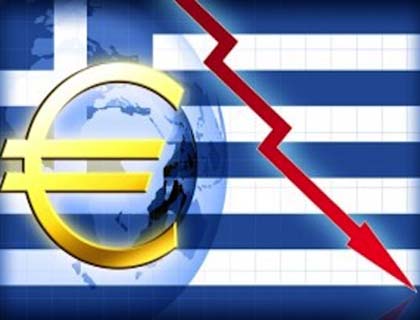The status of Greece in the Euro- zone is going from worse to damaging. Pro and anti-austerity measures are almost equally divided in recent parliamentary election. Previously, Greek leaders accepted the condition of EU and IMF to receive the bailout money and go with severe economic austerity measures, but the current situation is enveloped in veil of ambiguity and uncertainty.
Since the very democratization of the country decades ago, two major political parties have always worked shoulder by shoulder. Seats of the parliament generally have been owned by members of New Democracy and Socialist political party, and other political parties always have been pushed into margin. But four years of consecutive economic slowdown and back-breaking accumulation of public debt has dealt large implication over power arrangement.
The left political coalition and potential opposition to EU austerity plan for Greece, Syriza in a fair and transparent parliamentary election surpassed from the Socialists and became the second largest political party in the country. No doubt, what has set Syriza at forefront is nothing other than tougher stance against economic austerity measures, which, a part of people maintain, is accomplice to the nation's crippled economic status. The unemployment rate has horrifyingly gone up and stands at almost 24 percent now. The present politically instable situation of the government certainly would make the situation even more complicated.
As, I already mentioned that what set Syriza at the forefront is the party's approach towards austerity measures; in fact, after 2008 house bubble burst up in the United States and subsequent global financial crises and economic recession, Greece and several other marginal Euro-economies were hardly punished for what many major Euro-countries call as inconsiderate and careless public consumption. Even before the start of global economic depression, Greece had large public debt.
Perhaps, the problem lied with Euro shelter. On the basis of mutual agreement, 17 nations from 27 European nations agreed to use a single currency, the Euro. Some countries though joined the Euro but kept their own national currency too, like Britain, while the majority gave up their own currency.
Greece is one of those nations. Joining to single currency provided it with immense opportunity to fuel growth and development on account of mass flow of easy cash. The flow of easy cash led to economic development as well as expansion. Huge investments were made in the housing market and minimum wages increased remarkably. In proportion to wage rise in private sectors, government also increased the wages of its employees. It also embarked to expensive projects while the tax rate did not increase tremendously to provide enough budgets for government expenditures.
As a result, the gap between public revenue and expenditure gradually became wider and wider and government had to seek out another resource to pay the salaries of its employees and other expenditures. What it could do? It went up to market for cash which was available because it was a member to Euro economic zone. How? The interests rate which is so sensitive and is afloat to market's ups and downs, can react against economic booms and busts. If the landscape of an economy looks cloudy, than the interest rate rapidly reacts and it becomes hard for a nation to borrow with interest rate in which comparatively stronger economy can.
But it differed in the case of Greece, because what creditor looked was not the economic performance of Greece, but the overall Euro-countries. It had comparatively weaker economy and its economic boom was based on higher consumption indeed not on enhancement of its business competitiveness. Meanwhile, it could get money from Euro and international markets with the same interest rate as, for example, Germany could. The consequence of such extravagant consumption is today's back-breaking public debt.
Presently, it depends on the bailout of money of euro countries and IMF otherwise it would face systematic default, which would be fatal for the nation.
Its creditors—EU/IMF—conditioned financial support to severe austerity measure to be put in practice in order to save enough money to decrease down the existing gap between public revenue and public expenditure.
Though the previous government agreed with what most Greeks call as harsh and cruel condition and leaders of major political parties accepted to exercise the government's commitments in the case of possible power change, but the existing vague and uncertain political situation hints to another story.
Right after the announcement of the result of parliamentary election, experts claimed that voters punished major parties for following the EU and IMF command. All three major political parties have failed to form a coalition government because the parliament is divided between pro and anti-austerity policies.
After initial try and backdoor negotiations, the leaders of Socialist, New Democracy and Left Coalition Syriza confessed to failure of being able to form a government. So, Mr. President, Karolos Papulias summoned party leaders on Saturday for one final attempt to avert new elections, but the efforts looked doomed to failure after politicians were deeply divided over austerity plans and said they would stick to their guns.
Papoulias called the leaders of the three biggest parties for coalition talks on Sunday after Socialist leader Evangelos Venizelos became the third and last of them to acknowledge he had failed to assemble a coalition. His efforts have not proved fruitful as pro and anti-austerity plans are not to compromise. If the Greek leaders do not reach to agreement and form a coalition government, the re-election would be held within just a month which is terribly irritating for a weak economy, like that of Greece.

